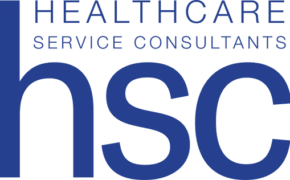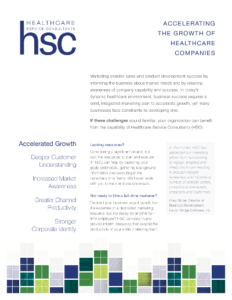
For leaders of start-up and scale-up companies, understanding how to leverage paid search can be the key to unlocking growth. Yet, paid search in the healthcare IT industry isn’t your typical marketing play. It’s a nuanced, specialized field that requires a deep understanding of both the market and the intricacies of search engine behavior.
In this blog, we delve into the unique challenges and opportunities of using paid. We also explore how you can leverage it to gain a competitive edge.
Demystifying Paid Search
Paid search can seem like a mysterious black box, even to seasoned marketing professionals. You might think you’ve nailed the right keywords. But then, you don’t see your ad rank as expected. Factors that influence how keywords rank in paid search results are complex and multifaceted. Search engines like Google use sophisticated algorithms that weigh many factors, including:
- bid amounts
- ad relevance
- landing page quality
- user behavior
Even when you think you have a strong strategy, the performance of your keywords might leave you scratching your head. This complexity doesn’t mean paid search is a lost cause for healthcare IT companies. It means there’s an opportunity to outmaneuver competitors. They might not understand how to maximize the potential of paid search in this niche market.
Why Healthcare Is Different
Healthcare IT is a highly-specialized field. Compared to broader industries with high search volumes for common keywords, healthcare IT, medical imaging, and related areas attract much smaller audiences. This means fewer people are searching for niche terms healthcare IT marketers use.
An advantage of lower search volumes is that the cost per click (CPC) for these keywords can be lower. This allows you to stretch your marketing budget further. The flip side is that the search terms used vary, making it essential to be strategic about the keywords you choose to target. The specificity of your audience can work to your advantage. Focus on the right terms that resonate with potential buyers.
Honing a Competitive Edge
In healthcare IT, standing out to diverse buyer personas is critical. It might surprise you that some competitors aren’t leveraging paid search. This gives you a golden opportunity to gain an advantage. If your competitors focus on general terms, you can differentiate yourself by targeting more specific, narrow keywords.
Such an approach allows you to avoid competing with bigger players who have deeper pockets and can afford to bid on a wide array of terms. By honing in on targeted keywords, you can position your company to the right audience—those searching for the solutions you offer.
Tailoring Paid Search Campaigns
To further maximize the effectiveness of your paid search efforts, it’s essential to tailor your campaigns to specific products and the distinct personas likely interested in those products.
Let’s say you offer multiple products that solve different problems or address specific needs within the healthcare ecosystem. Paid search allows you to create distinct campaigns for each product, using targeted keywords that capture search traffic relevant to each offering. For example, suppose your company provides solutions for both medical imaging and healthcare interoperability. In that case, you can develop separate campaigns to address each product’s unique search terms and pain points.
Different personas within the healthcare IT landscape have distinct needs and search behaviors. A chief technology officer (CTO) might search for highly-technical solutions. But a clinician might focus on problem areas or specific outcomes. Paid search enables you to tailor your campaigns to these varied personas. This ensures your ads appear when they search for terms aligned with their specific roles and challenges.
By combining product-specific and persona-focused strategies, you can create highly-targeted paid search campaigns that reach the right audience with the right message at the right time.
Linking Paid Search to Your Sales Strategy
It’s also important to understand that paid search doesn’t exist in a vacuum. It should be closely tied to your sales strategy. Understanding the language and terminology used at various stages of the sales funnel can help you identify the right keywords and develop messaging that encourages clicks.
By aligning your paid search efforts with your sales strategy, you can ensure that your ads reach the right audience at the right time. Ultimately, this drives more qualified leads to your website.
Taking a Strategic Approach
To get the most out of paid search, you need a strategic approach that aligns with your broader SEO and content strategy. Bidding on a set of keywords won’t land you in the top search results. Several factors come into play, including:
- Budget and keyword bid strategy
- Alignment with your overarching SEO strategy
- Relevance of website content to selected keywords
- Click-through performance
- Quality of the landing page experience
Healthcare IT leaders, who are often tech-savvy, may find the lack of clear answers and immediate results frustrating. But, paid search requires patience and continuous refinement. If your keywords aren’t performing as expected, don’t see it as a failure. Rather, know it’s an opportunity to adjust and improve. Testing different keywords, analyzing performance data, and refining your strategy over time will help you find the terms that deliver the best results for your products and target audiences.
Harnessing the Power of Paid Search
Paid search should probably be part of your product marketing arsenal. If you aren’t sure how to get the best results, or if you’ve tried paid search and left disappointed, it might be time to engage a healthcare IT product marketing expert.
Our team can help you understand how paid search intersects with your broader SEO and content strategy. We can help you develop a paid search strategy that drives greater visibility and success across your target audience. Contact us to learn more.




